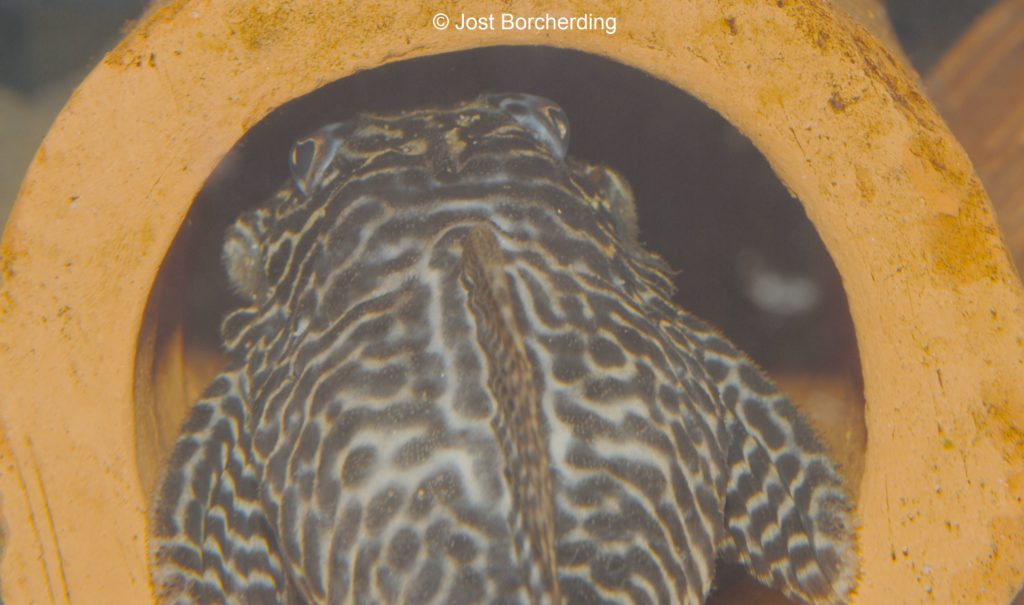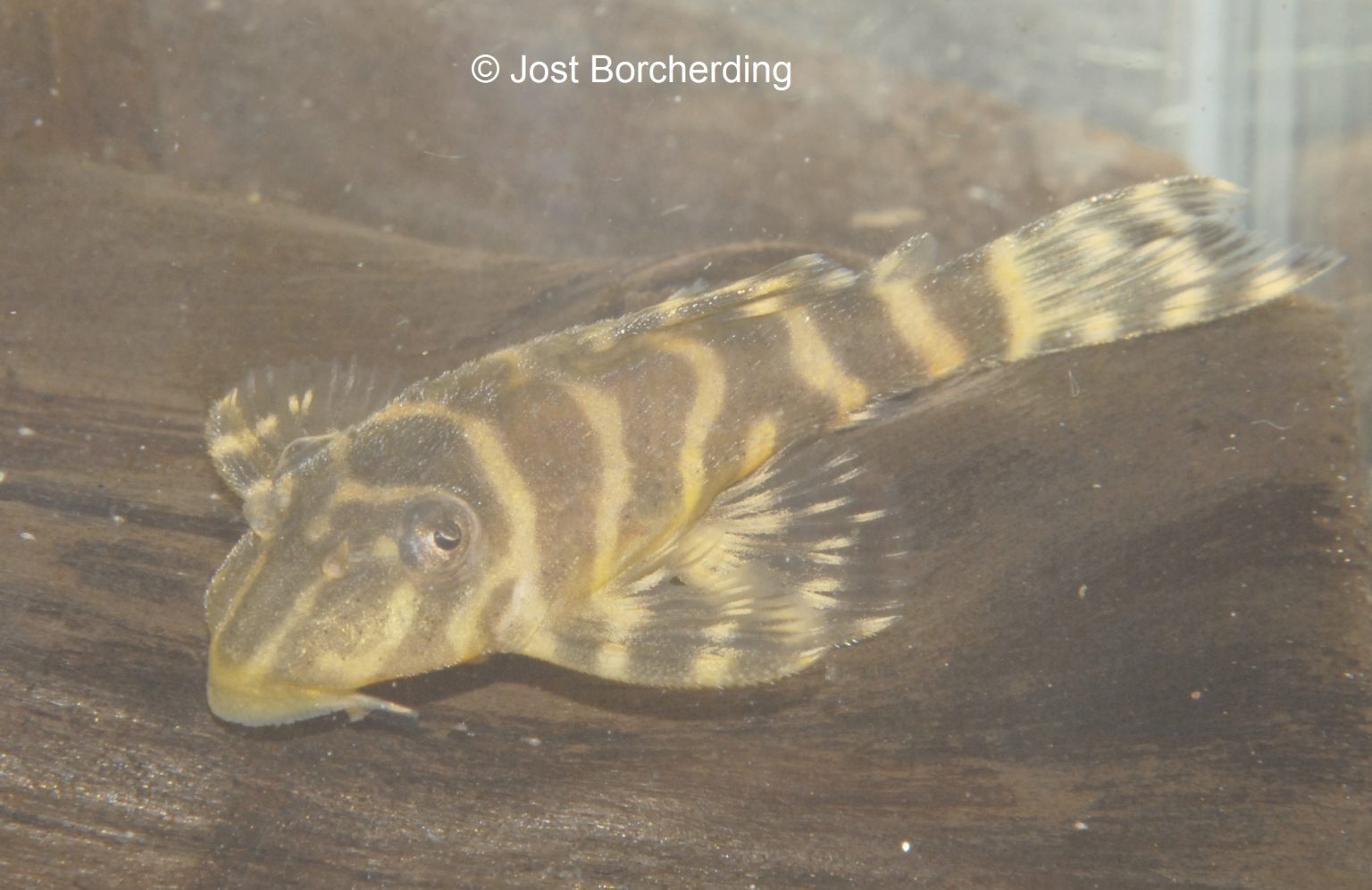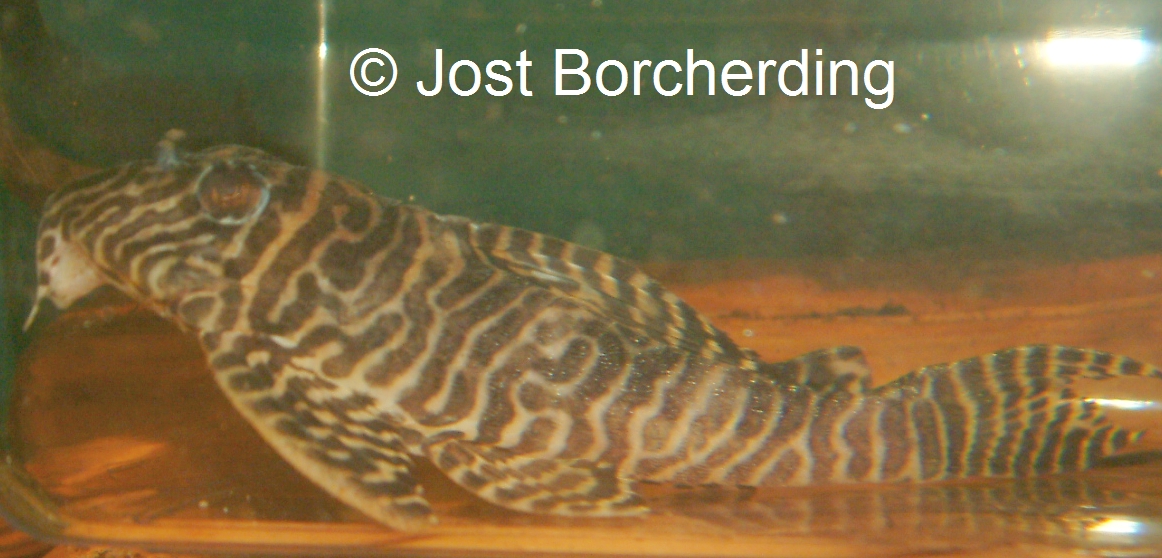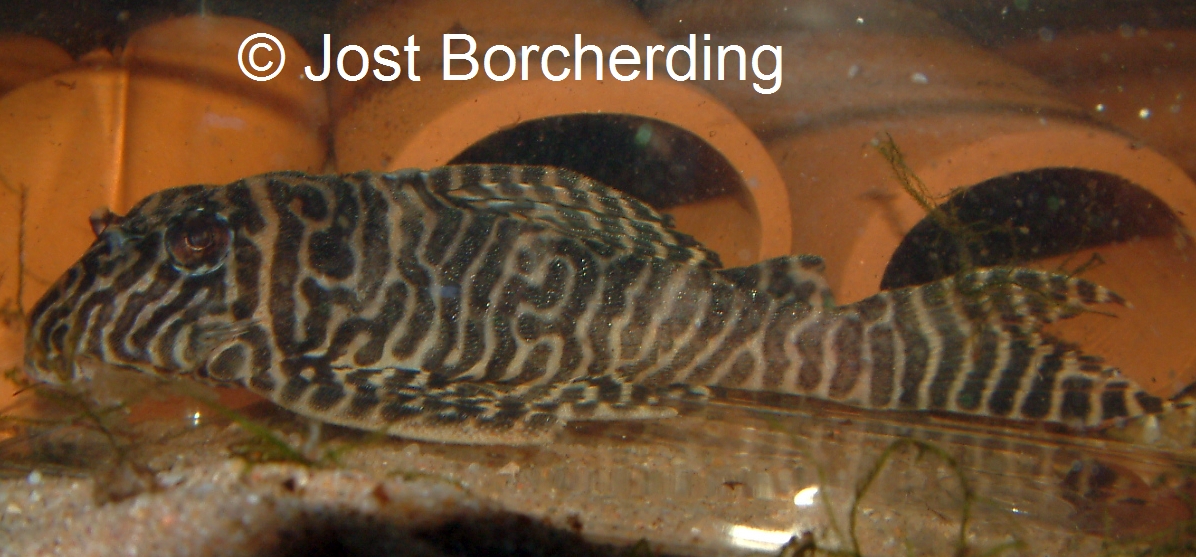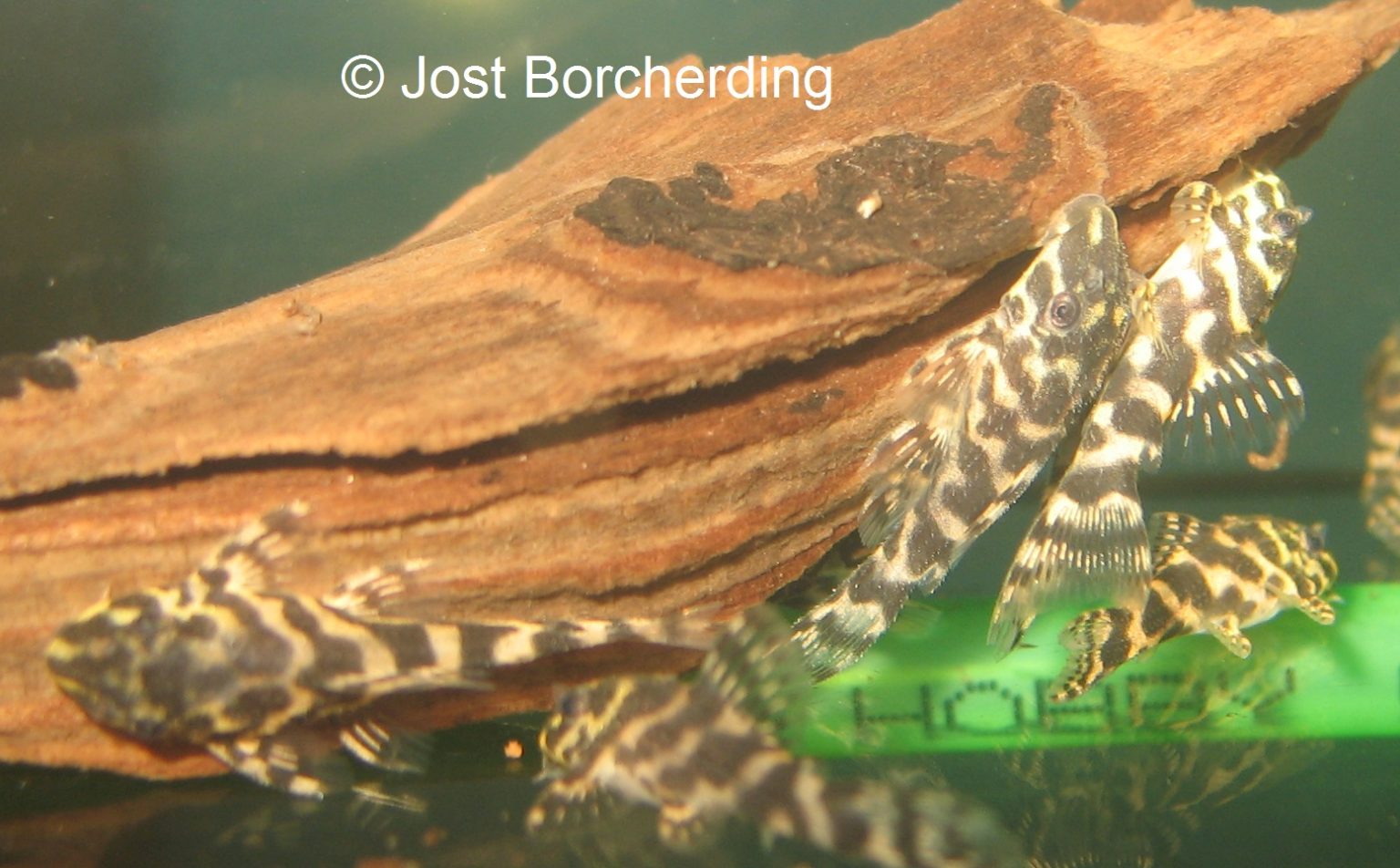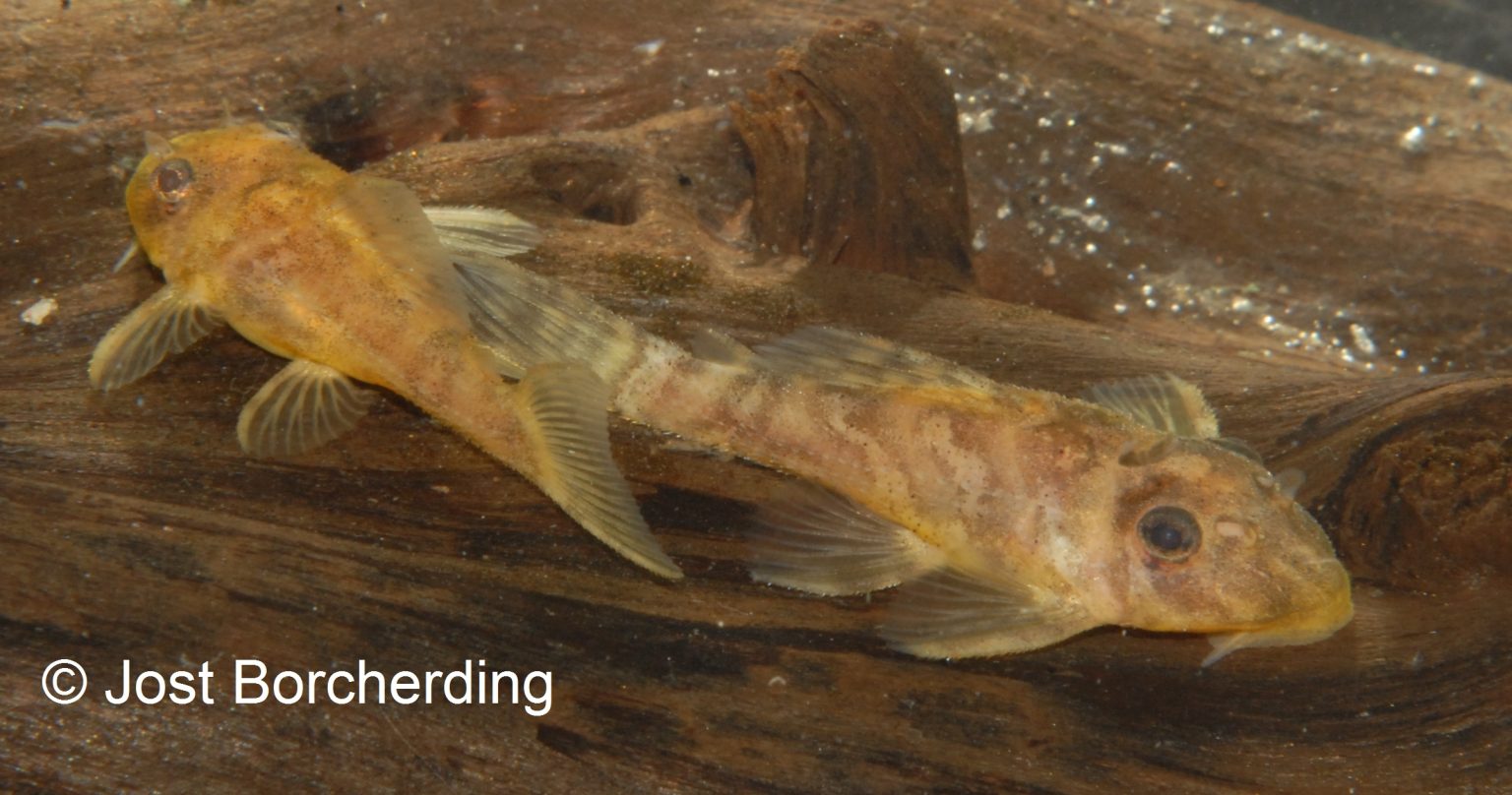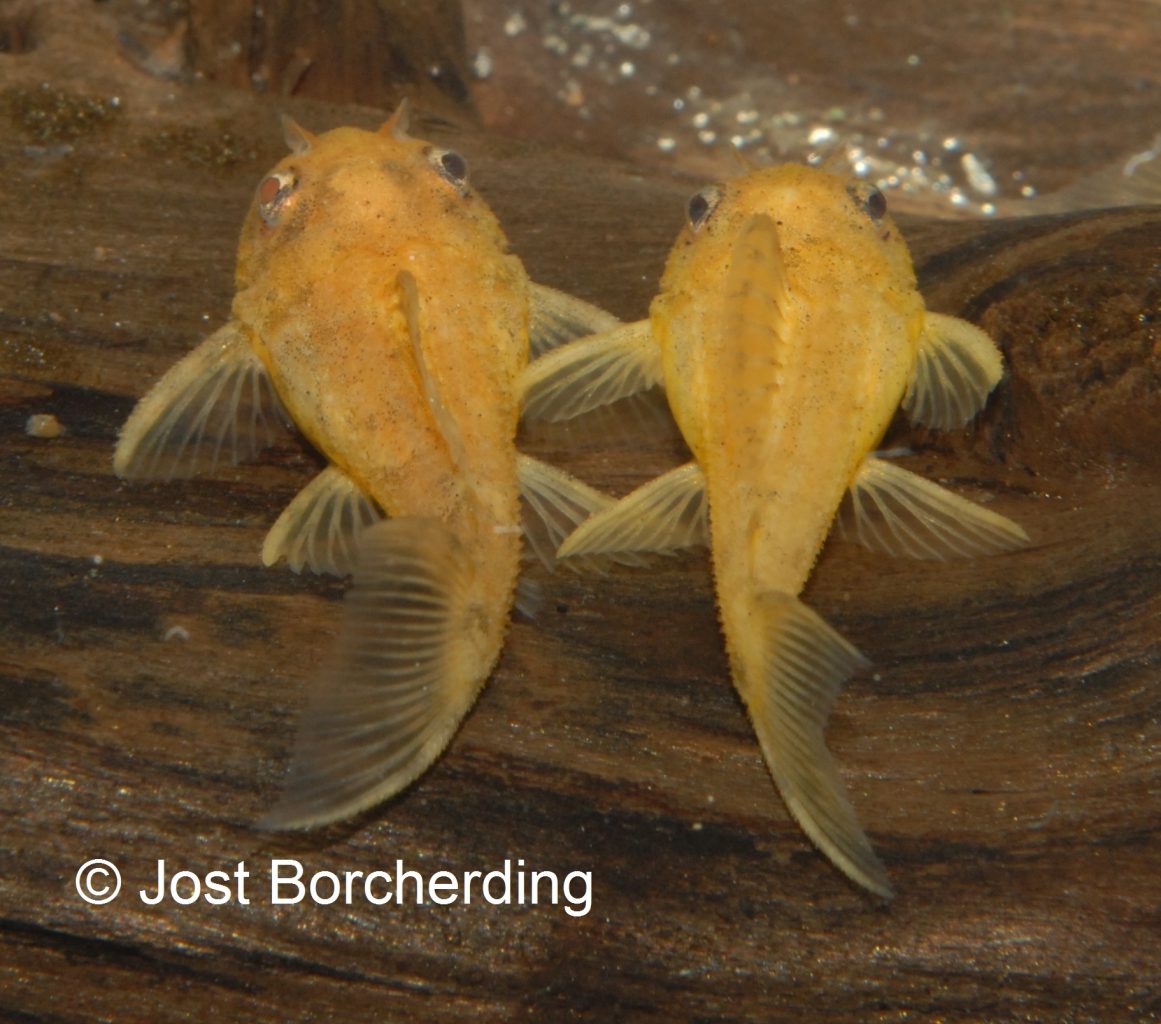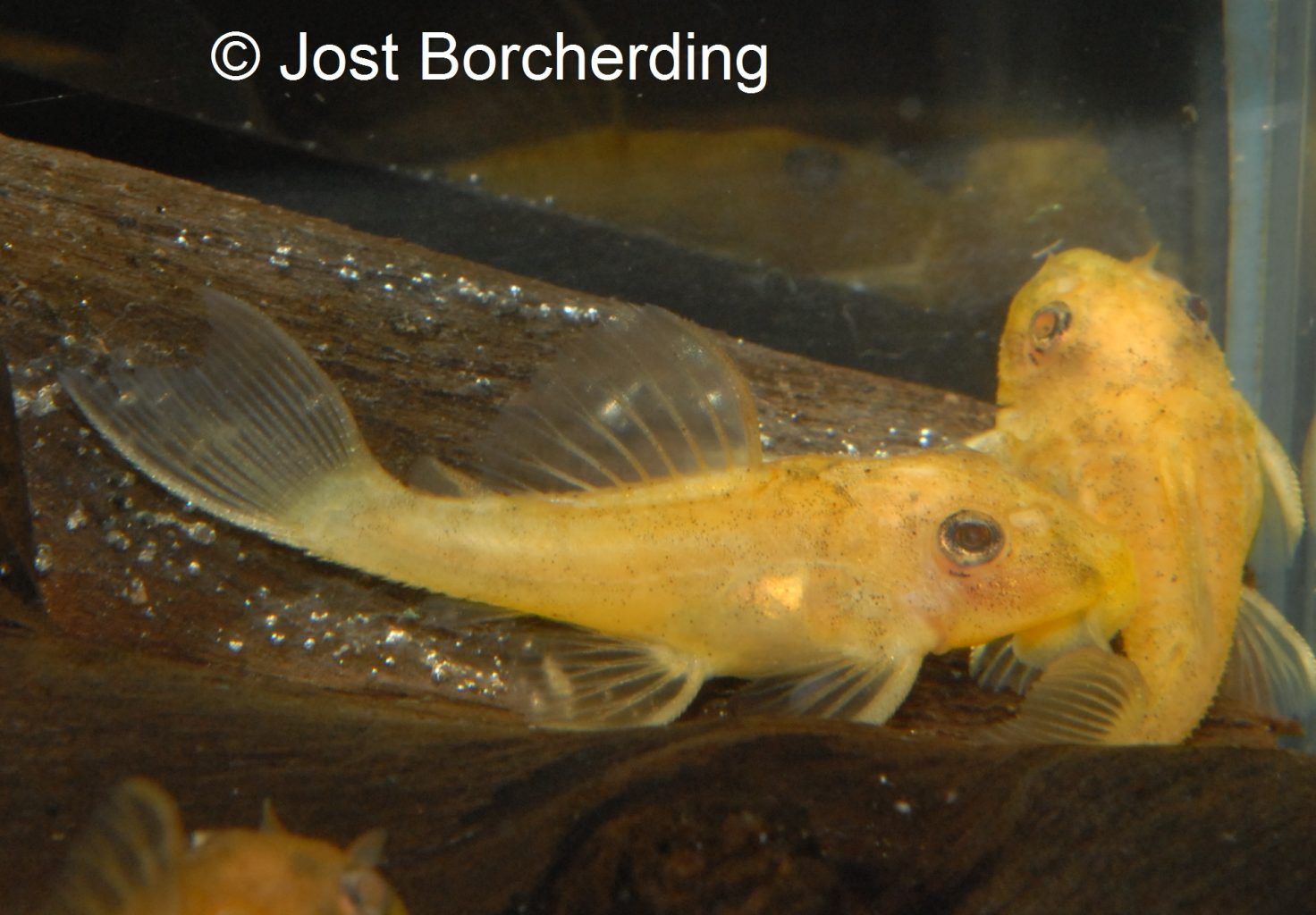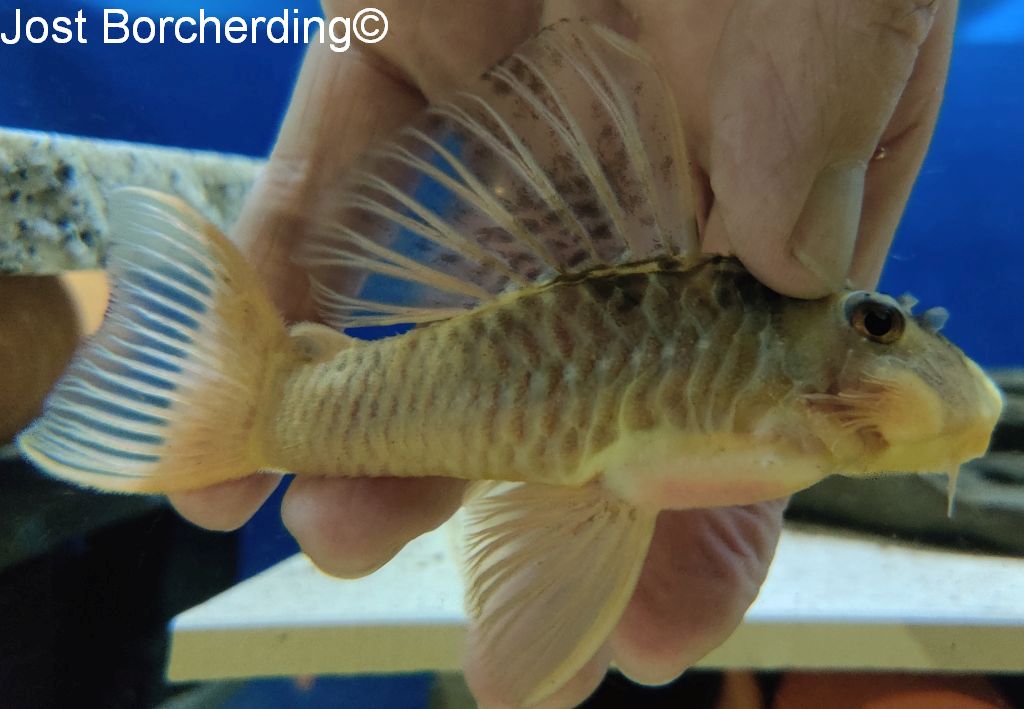Hypancistrus sp. (L333)
Young animals with temporary colour changes (loss of black pigmentation). This is a reversible process.
Not only juveniles, but also adult specimens can lose their colour. Here is my dominant buck from my breeding aquarium, which has continued to change colour for almost 2 years. These colour modifications, the cause of which is still not fully understood, have also been observed in other loricariid catfish species such as Baryancistrus, Hypancistrus, Leporacanthicus, Oligancistrus, Panaqolus, Panaque, Parancistrus, Pseudacanthicus, Pseudancistrus and Spectracanthicus (cf. Deuschle 2018, https://www.ig-bssw.org/wp-content/uploads/2021/12/Deuschle-Parancistrus-nudiventris-Report03-04-2018.pdf).
Hand on heart, who would have recognised this as Hypancistrus sp. L 333?

